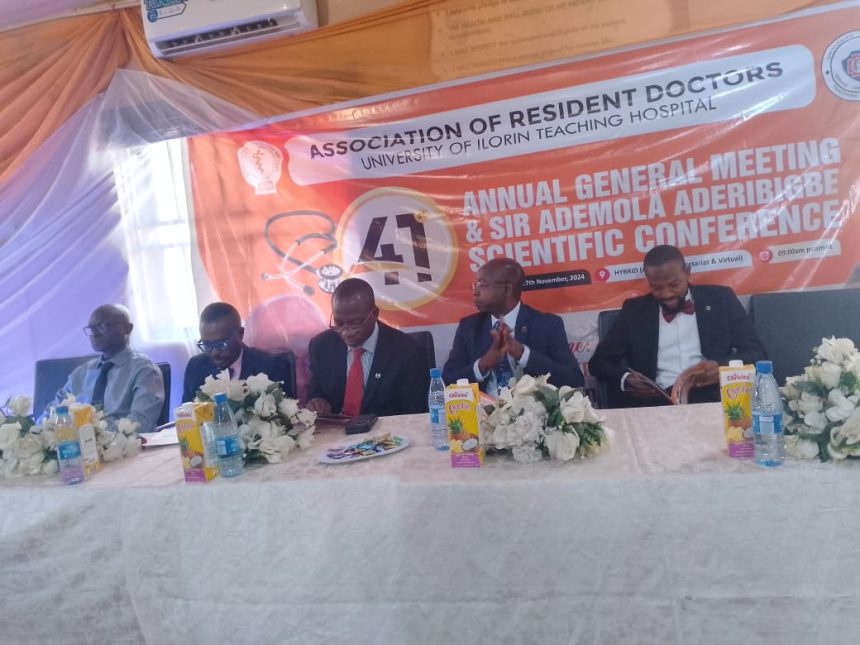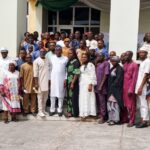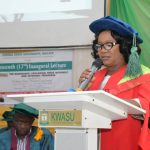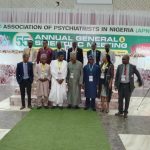From Taiye Joseph, Ilorin.
A Consultant Neurologist at the University of Ilorin Teaching Hospital (UITH), Prof. Kolawole Wahab, has raised concerns about the growing trend of medical graduates leaving Nigeria without completing their mandatory housemanship.
Prof. Wahab made the remark during his lecture at the Annual General Meeting and Scientific Conference of the Association of Resident Doctors, UITH (ARD-UITH), recently in Ilorin. The lecture, titled “Reshaping Residency Training in Nigeria: Digital Technology, Financial Inclusion, and Their Impact on Residency Training,” emphasised the critical role of residency training in equipping medical professionals with self-directed learning and essential skills.
He described residency training as indispensable, noting that it is accredited by institutions like the National Postgraduate Medical College of Nigeria and the West African Postgraduate Medical College.
He urged young medical graduates to embrace the process, saying, “There is a need to keep abreast of societal changes, especially in terms of competence and acquiring necessary skills.”
Wahab also highlighted the importance of digital technology, urging doctors to explore emerging areas like Artificial Intelligence (AI) and Telemedicine, which allow remote clinical care. “Telemedicine is particularly vital in this phase of the industrial revolution,” he stated.
On financial inclusion, Wahab stressed its relevance to achieving the Sustainable Development Goal (SDG) 17 on health and well-being, calling for improved access to financial resources to support healthcare delivery.
Another speaker, Consultant Public Health Physician at UITH, Prof. Gordon Kayode, addressed the health implications of climate change.
His lecture, titled “The Effect of Climate Change on Emerging and Re-emerging Diseases: Bridging Reality and Research for Holistic Healthcare,” pointed to the role of greenhouse gases in worsening climate disruptions, leading to extreme weather, food shortages, and environmental degradation.
Kayode warned that over 80 percent of emerging diseases are viral, with no available antiviral solutions. “More than 80 percent of emerging diseases are viral and becoming difficult to handle, with no antiviral solutions,” he said.
He called for collaborative efforts to reduce carbon emissions, adopt renewable energy, and practice eco-friendly measures like tree planting and gardening.
Earlier, ARD-UITH President, Dr. Muhammed Yusuf, described the event’s theme as addressing the pressing challenges in residency training. He highlighted the association’s activities, including medical outreaches, donations to orphanages, and the election of new executives.
The event underscored the intersection of digital technology, climate change, and healthcare, advocating for a holistic approach to address emerging challenges in the medical field.







